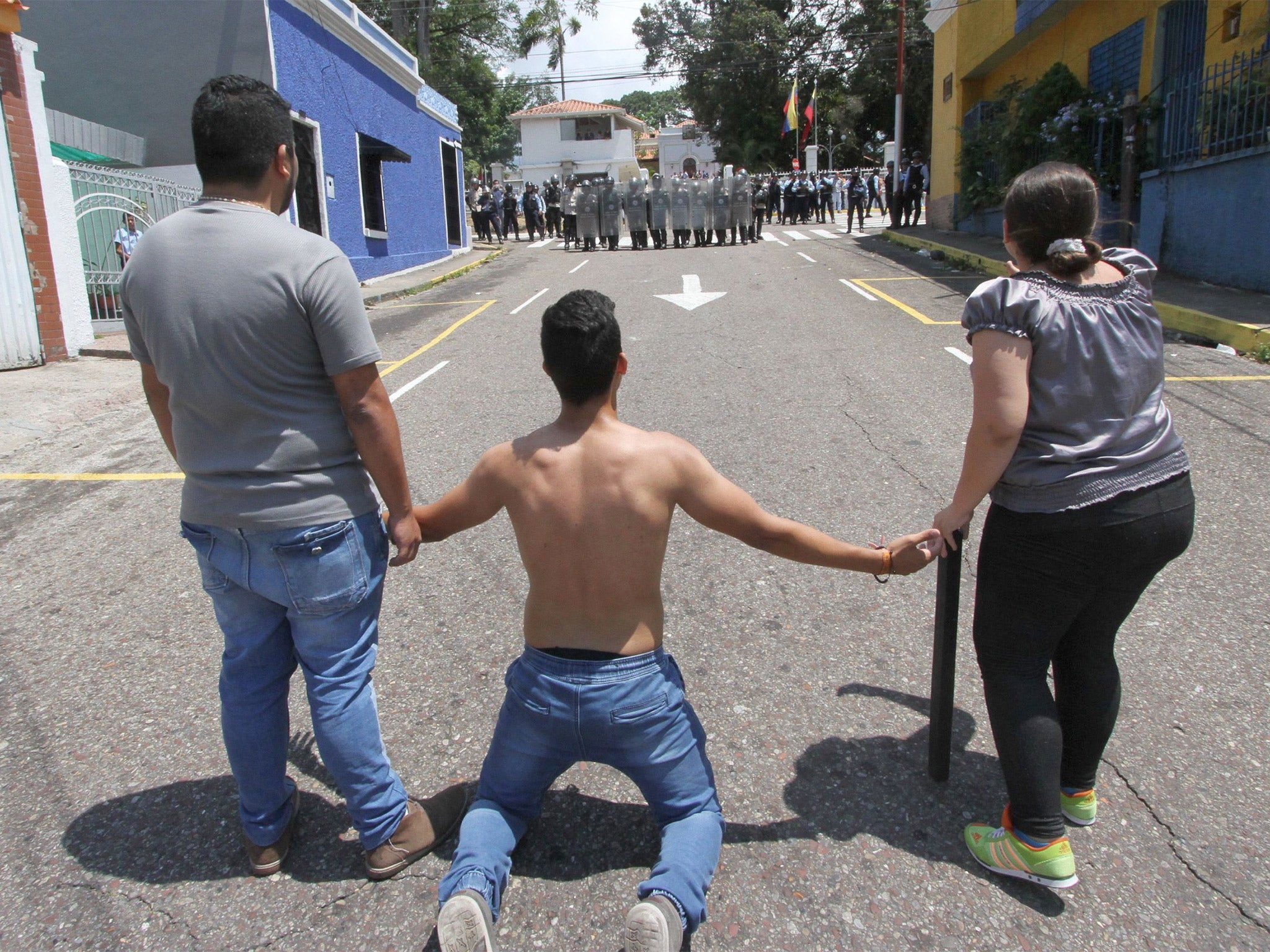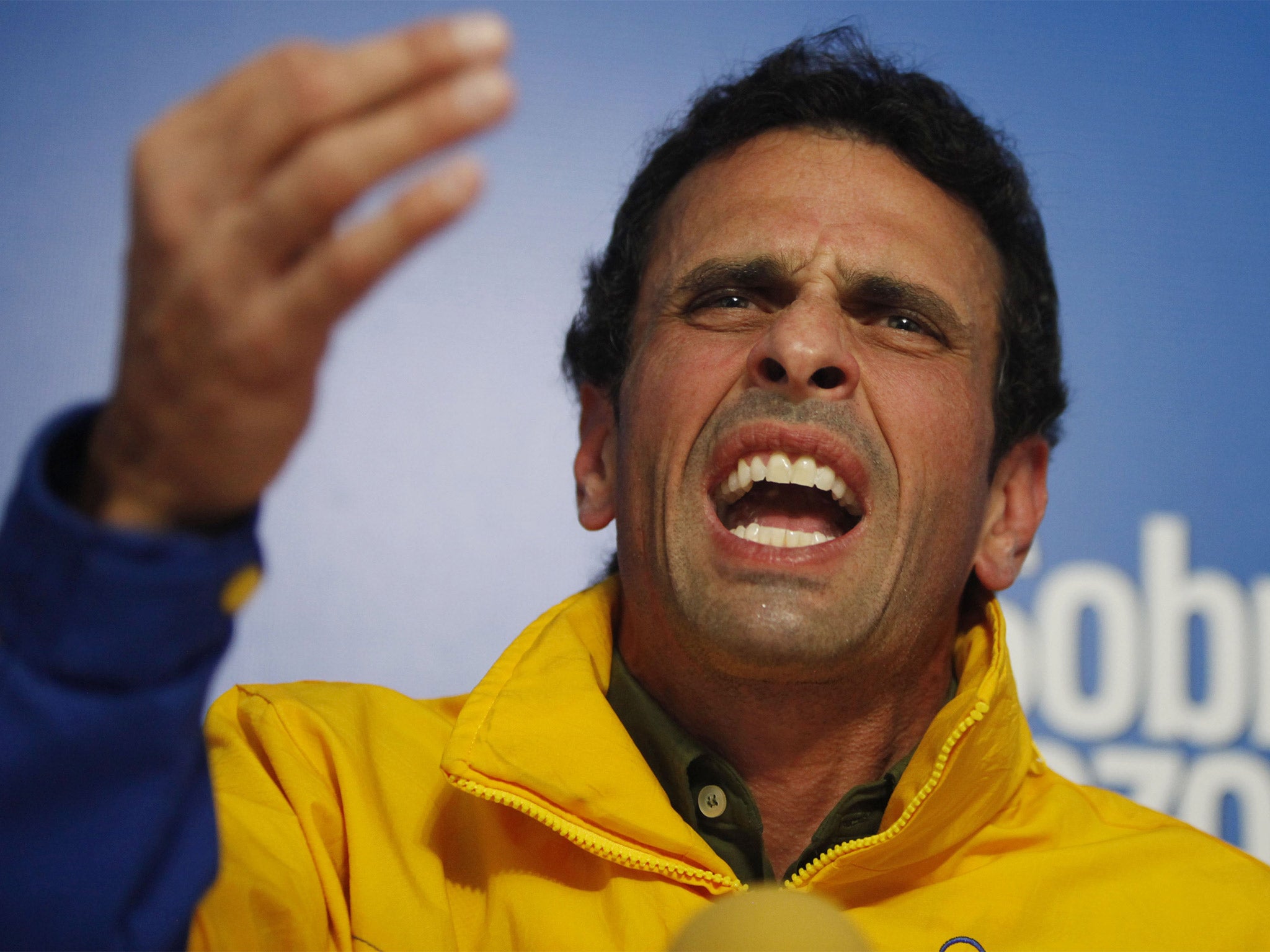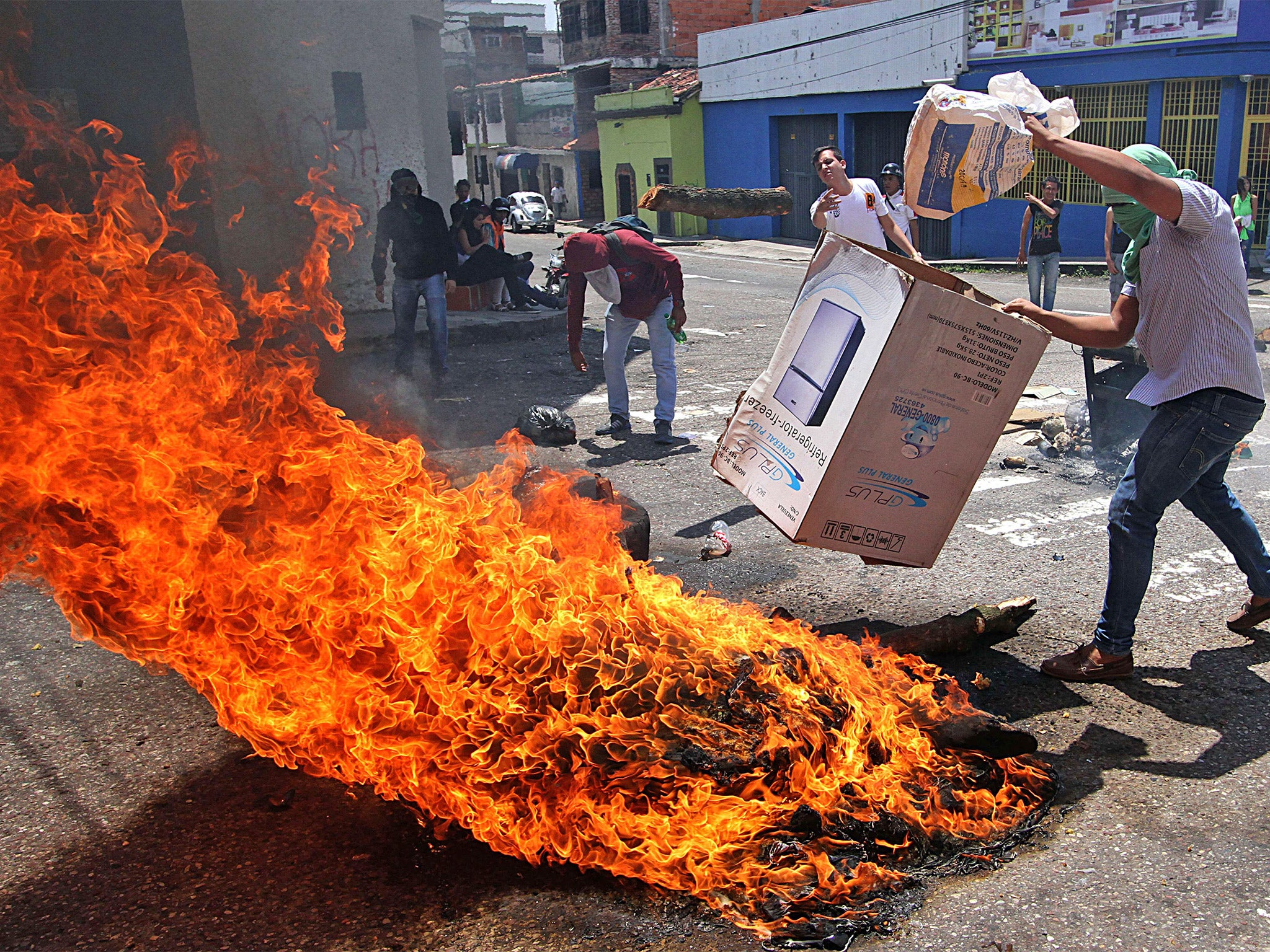Dissent in Venezuela: Maduro regime looks on borrowed time as rising public anger meets political repression
In his latest dispatch from strife-torn Venezuela, David Usborne investigates the crushing of dissent – and meets opposition leader Henrique Capriles, who has been under surveillance since losing the battle to succeed Hugo Chavez

Your support helps us to tell the story
From reproductive rights to climate change to Big Tech, The Independent is on the ground when the story is developing. Whether it's investigating the financials of Elon Musk's pro-Trump PAC or producing our latest documentary, 'The A Word', which shines a light on the American women fighting for reproductive rights, we know how important it is to parse out the facts from the messaging.
At such a critical moment in US history, we need reporters on the ground. Your donation allows us to keep sending journalists to speak to both sides of the story.
The Independent is trusted by Americans across the entire political spectrum. And unlike many other quality news outlets, we choose not to lock Americans out of our reporting and analysis with paywalls. We believe quality journalism should be available to everyone, paid for by those who can afford it.
Your support makes all the difference.Henrique Capriles is just getting started on why the trampling of civil and human rights coupled with shortages of basic commodities means the end is surely nigh for President Nicolas Maduro, when something catches his eye through the window. “There you are, you see,” he says.
It is a familiar sight to residents of Caracas, the capital of Venezuela, a country where daily deprivations and political volatility form a single toxic loop. Men clad in military body gear race past on motorcycles, on full alert for anyone daring to protest against the regime.
“The only things left for this government are lies, the exercise of repression and the use of violence against its own people,” says Mr Capriles. He is the Governor of Miranda state and conceded to Mr Maduro after tight elections in 2013, following the death of Hugo Chavez. “They are living in a different world. I believe they underestimate what is going on, the situation in the country.”

Inflation is running at 70 per cent or higher and queuing for hours to get into empty shops has become daily drudgery in Caracas. Beyond the capital, shortages of everything from deodorant to flour to condoms as well as vital medicines are even greater. “It’s unbelievable,” says Mr Capriles, noting that in the 12 years from 2000, Venezuela earned $800bn in oil revenues alone. “You don’t have soap to wash. A country with the biggest bonanza in history and today we have the highest inflation in the world and shortages everywhere.”
The soldiers on motorbikes were bound, it turned out, for the neighbourhood of Chacao, where a few angry youths had got into an altercation with police, set rubbish bins alight and assaulted two journalists. The fracas was over almost before it started. But one year after anti-government protests rocked the capital and left 43 people dead, tensions are running high.
A day after The Independent met Mr Capriles, intelligence agents stormed into the office of the Mayor of metropolitan Caracas, Antonio Ledezma, a fierce critic of both Mr Maduro and before him Mr Chavez, and arrested him. He has since been charged with sedition.
In the same military base that holds Mr Ledezma is opposition leader Leopoldo Lopez, who surrendered himself at the height of last year’s protests and is now on trial. On Tuesday, a 14-year-old boy died after being shot in the head by a policeman during an anti-government protest in the western city of San Cristobal. The Interior Minister, Carmen Melendez, said the officer has been arrested.

“Probably this is the worst situation in the history of Venezuela,” says Mr Capriles, who has the frame of a long-distance runner and eyes that burn as he talks. He is under surveillance every minute of the day. “I can’t travel [without being watched]. I am the most censored person in the country.”
He also can’t speak to Mr Lopez let alone confer with him on strategy. And all the while, the threat looms of more arrests. No fewer than 33 mayors aligned with the opposition are under investigation by the secret intelligence agency.
Speaking in his Caracas offices, Mr Capriles insists that while Mr Maduro, handpicked by Mr Chavez as his successor, was declared the victor in the April 2013 election by a tiny margin, he in fact received more votes. At the time he decided against contesting the results for fear it would trigger a civil war.
Moreover, had he secured the presidency, his majority would have been so slim he would have been unable to bridge the divisions. While fiercely criticised for it, he concluded then that he and all the opposition forces were better advised to bide their time. His logic was simple. Mr Maduro would stumble and the opposition would be ready.
That moment has surely arrived. With the government’s economic strategy in a mess, undermined in part by a massive fall in the price of oil, recent surveys have put Mr Maduro’s popularity at 22 per cent. Suggesting a man who feels cornered, the President has spoken darkly in recent days of a US-backed plot to overthrow him.
“Everything in life has its time,” Mr Capriles says. “I believe that for the first time it’s quite clear that the majority of Venezuelans, not 50 per cent plus one, but 80 per cent of Venezuelans, want change. The country today is totally different from one year ago.”
He sees victory for the opposition in legislative elections that must be held before the end of the year, and plans to use that to force change on Mr Maduro – or force him out. While the next presidential elections are still four years away, the law says a recall election on Mr Maduro is possible from 1 January next year.
But first, Mr Capriles admits, a schism between him and the followers of Mr Lopez, who want change to come faster and if necessary from the streets, must be healed and the opposition must unify. “I am working for this. I believe that Lopez and everyone else are clear about the importance of a unified opposition. If you divide the 80 per cent in four then the government with its 20 per cent will endure.”
What must not happen, Mr Capriles insists, is for the country to boil over before the legislative elections. It is an eventuality that deeply worries him. He does not see it coming from the middle-class and students as it did last year, but from the poor in the barrios, or slums. He recalls such a rebellion in 1989, when thousands poured down from the hills to challenge the then government of Carlos Andres Perez. Hundreds were killed in clashes with police.
“I still remember that day vividly,” he said, adding that similar carnage could happen now if the military, heavily invested in Mr Maduro, decides to fire on protesters rather than refuse to follow orders. But Mr Capriles voiced cautious optimism that street confrontations can be averted. “Nobody has the power to know what is going to happen,” he says. “When you look at the economic situation, you say, ‘Wow, this could end in a social explosion.’ But the majority of the people don’t want that.”
Join our commenting forum
Join thought-provoking conversations, follow other Independent readers and see their replies
Comments